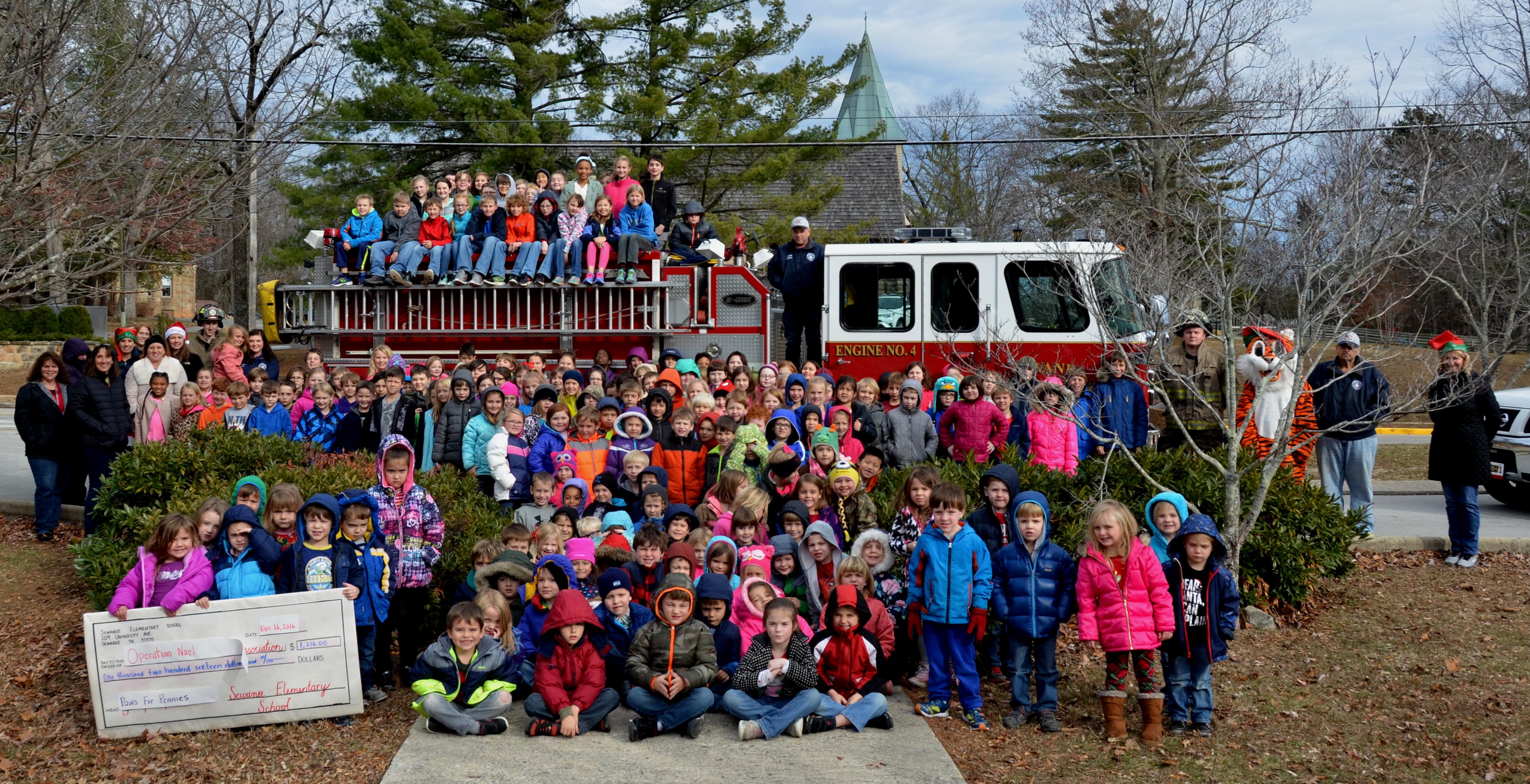Sewanee Elementary Students Raise Money
Each year, Sewanee Elementary students raise money to help make the holiday season a little brighter for families in the community in need. The money collected goes to help FROST (Fund Raising Operational Support Team) and the Sewanee Volunteer Fire Department purchase food and toys to deliver to area families to enjoy during the season. This year students presented a check for $1,216 to this worthwhile cause.
From Cowboy’s to Fire Engines: 33 Years of Operation Noel
by Kevin Cummings, Messenger Staff Writer
Civic Association Meets Partner in Community Engagement
by Leslie Lytle, Messenger Staff Writer
Updating the group on the campaign to refurbish the ballpark, President Lynn Stubblefield outlined pressing needs identified in meetings with soccer and Little League parents. Priorities include replacing bleachers, lighting, repairing the restrooms, and maintenance for the playing fields.
Council Approves Revised Nepotism Amendment
by Leslie Lytle, Messenger Staff Writer
At the Dec. 19 special called meeting of the Monteagle Town Council, the council revisited consideration of an amendment to the Personnel Policy addressing nepotism. The council approved a revised version of the amendment proposed at the Dec. 8 meeting. Preliminary to the vote, the council vetted concerns about grandfathering in employees and adherence to the Sunshine Law.
Hair Depot Plans to Stay in Area
by Kevin Cummings, Messenger Staff Writer
The Hair Depot salon will remain in the area, said owner Karen Throneberry, even when she ultimately leaves the current location off Highway 41A in Sewanee.
Burn Ban Lifted
The burn ban issued on Oct. 26 by the Governor’s office has been cancelled. Recent rains have started to replenish the water table and lessen dry forest conditions. While the ban has been lifted, caution should always be exercised.
Fires on leaseholds are subject to state burn regulations and may require a permit. State permits can be applied for online at https://agriculture.tn.gov/OnlineBurnPermitPublic/default.aspx>
American Spiritual Ensemble to Perform in February
The American Spiritual Ensemble will visit Sewanee for a multi-day residency in February, 2017. The American Spiritual Ensemble (ASE), with a mission of keeping the African American spiritual alive, was founded in 1995 by Everett McCorvey, professor of voice and director of opera at the University of Kentucky in Lexington, Ky. McCorvey and César Leal, conductor of the Sewanee Symphony and assistant professor of music, have been colleagues since Leal received a Ph.D. from the University of Kentucky. The ensemble’s repertoire includes classic spirituals, jazz, and Broadway numbers highlighting the Black experience.
Pearl’s Restaurant to Open Again
by Kevin Cummings, Messenger Staff Writer
SUD Approves 2017 Budget, Modest Rate Increase
by Leslie Lytle, Messenger Staff Writer
Representative Alexander Asks for School Board’s Advice; Board Needs Substitute Teachers
by Leslie Lytle, Messenger Staff Writer
Monteagle Council Postpones Vote on Nepotism Amendment
by Leslie Lytle, Messenger Staff Writer
Locals Travel to Stand with Standing Rock
by Kevin Cummings, Messenger Staff Writer
SCA Meeting, Dec. 14
The Sewanee Civic Association (SCA) will meet at 5:30 p.m., Wednesday, Dec. 14, at the EQB Building.
For more information go to
Willis to Present at the Academy, Dec. 15
The Academy for Lifelong Learning at St. Mary’s Sewanee will meet at noon, Thursday, Dec. 15. University of the South professor John Willis will present the program entitled “Landscape and Memory.”
MESSENGER Break Ahead
The Messenger will be on hiatus during the holidays. There will be two more issues in December: Friday, Dec. 16 and an early edition on Wednesday, Dec. 21. The staff will take a two-week break and return to the office on Monday, Jan. 9, with the first issue of 2017 on Friday, Jan. 13.
